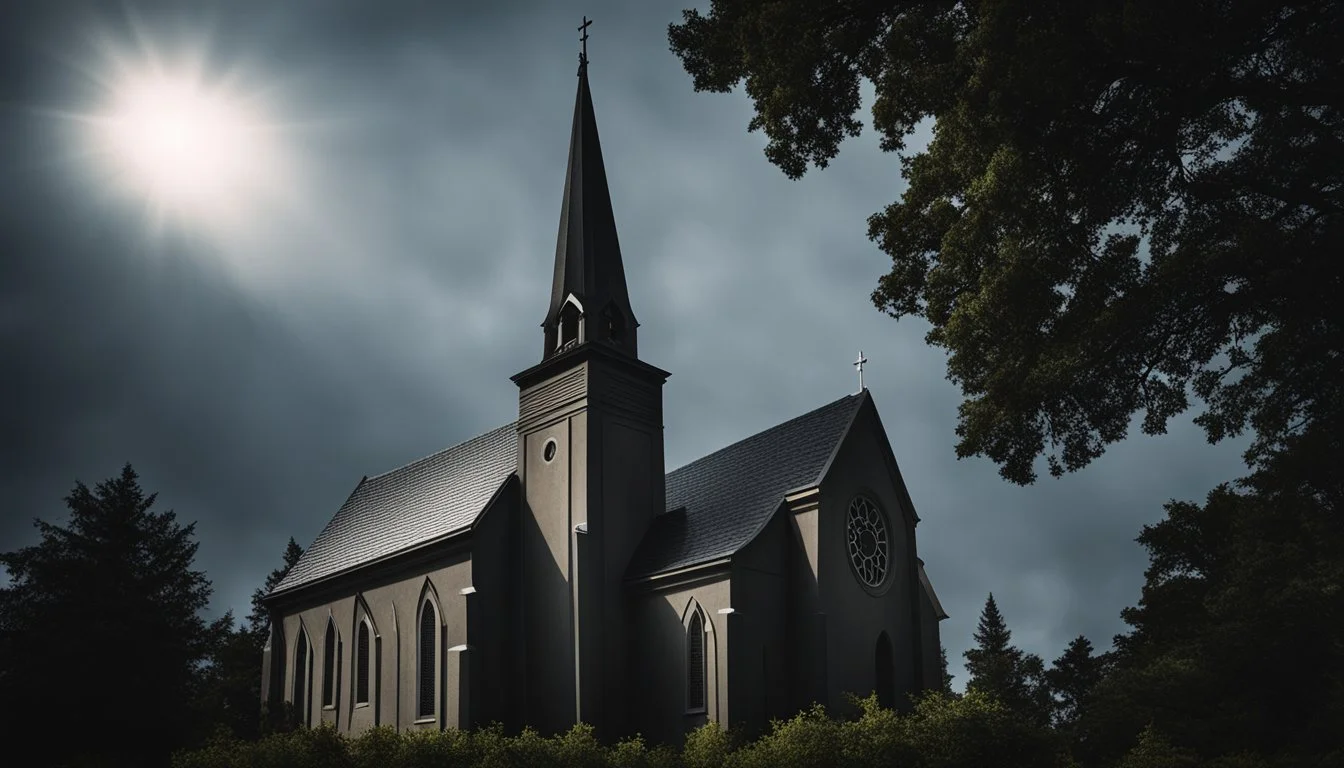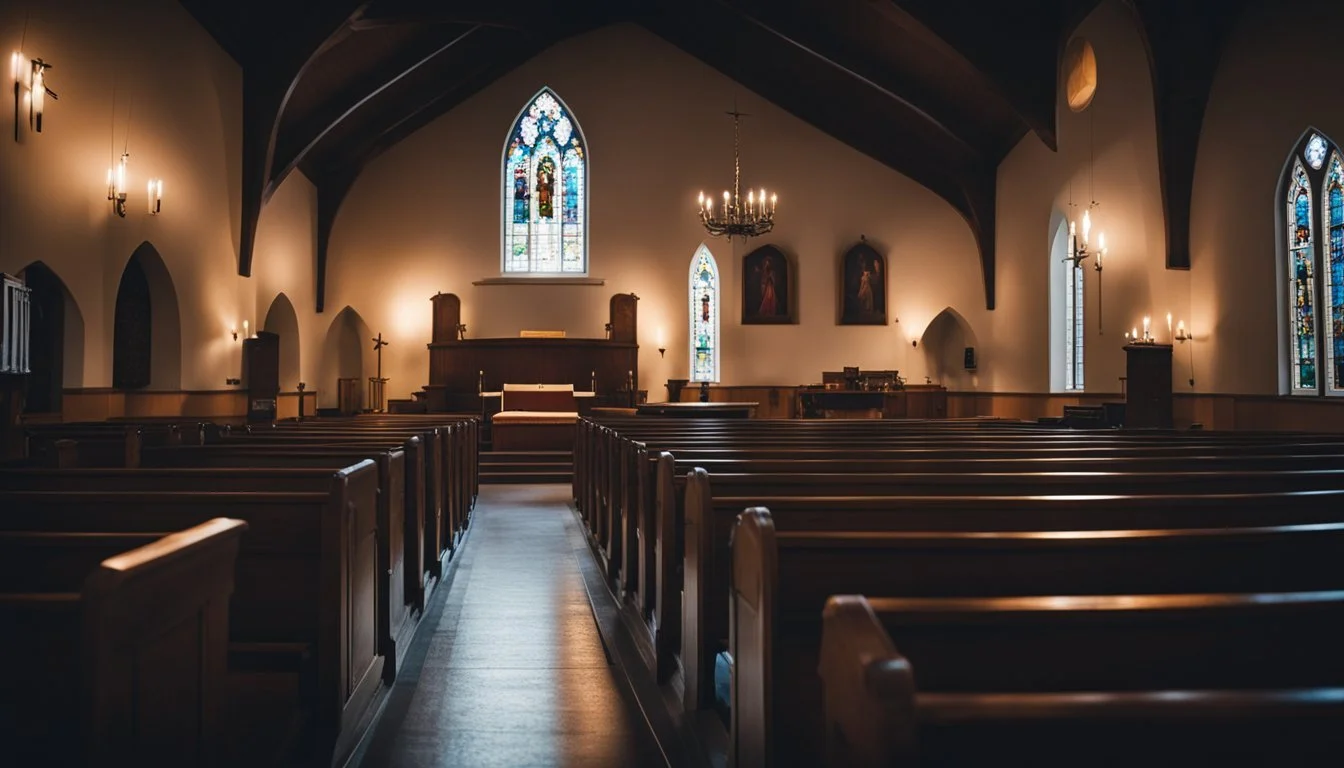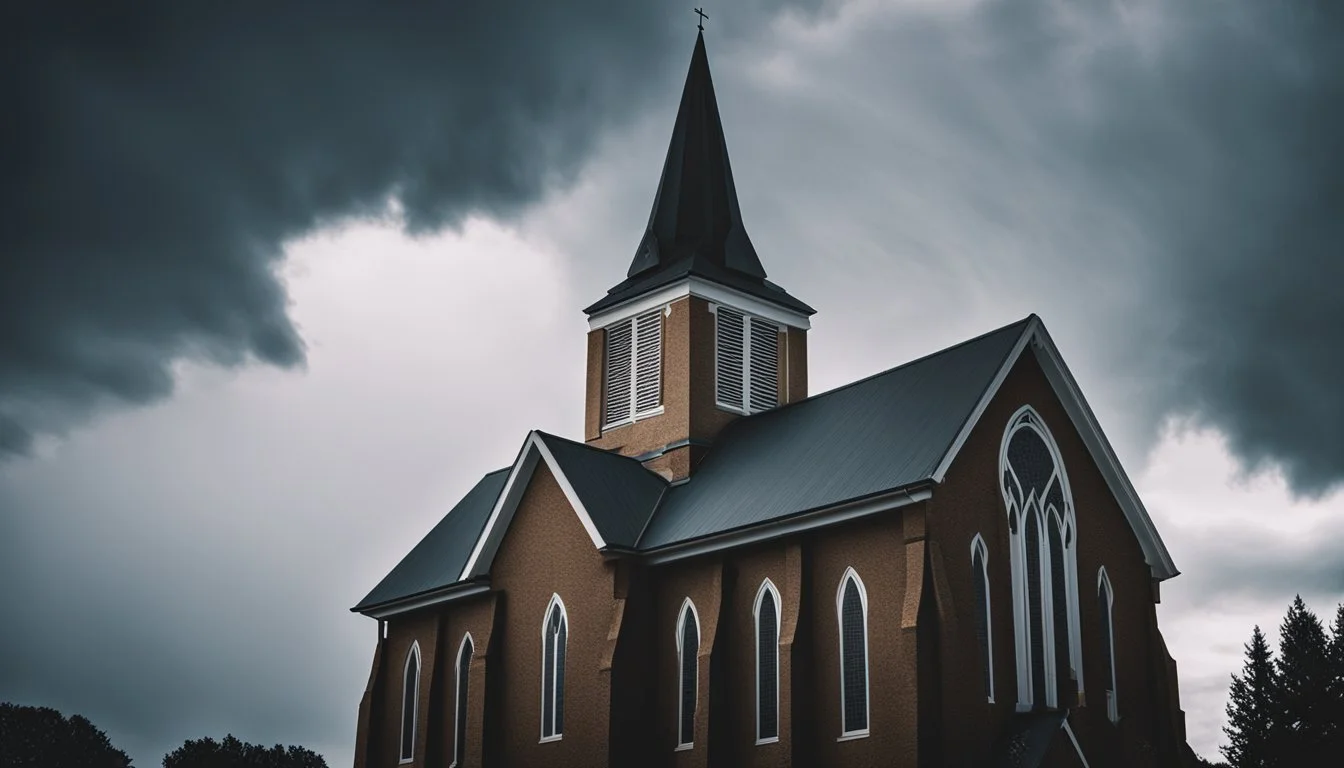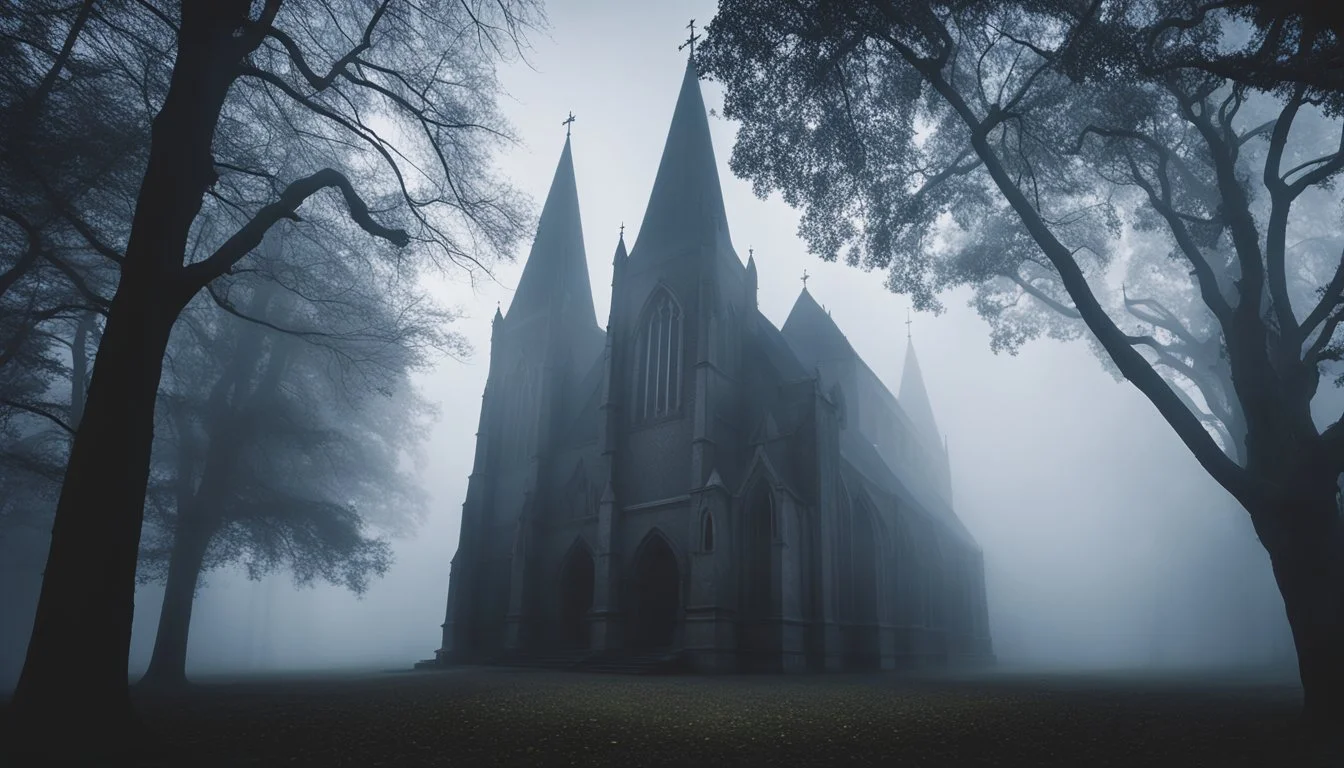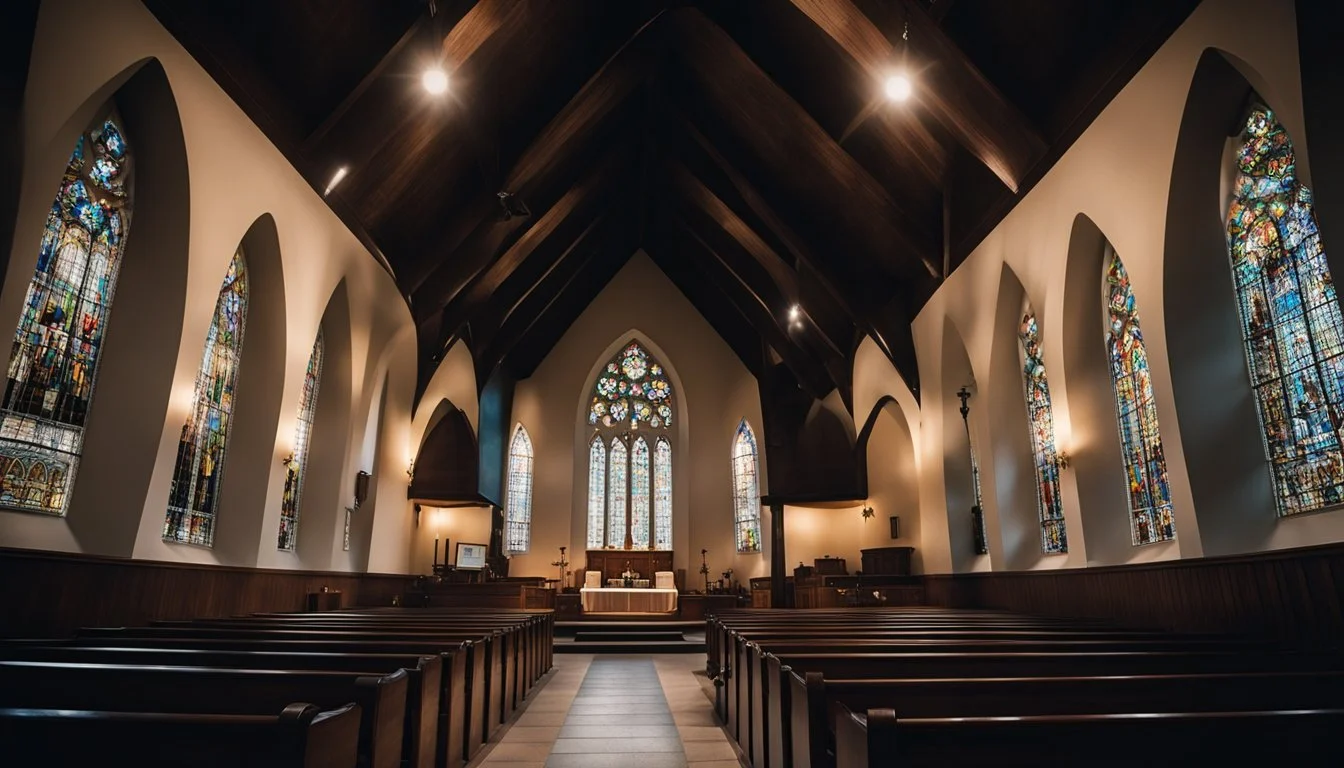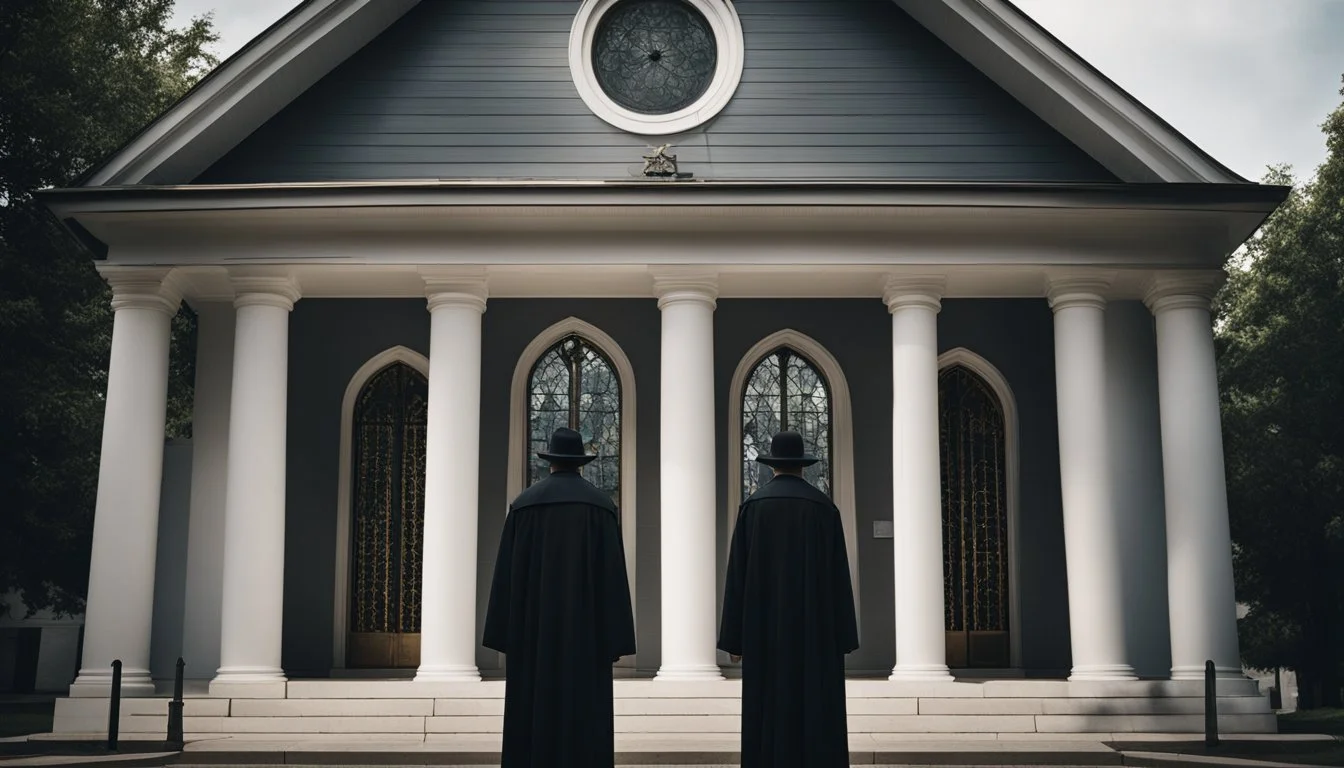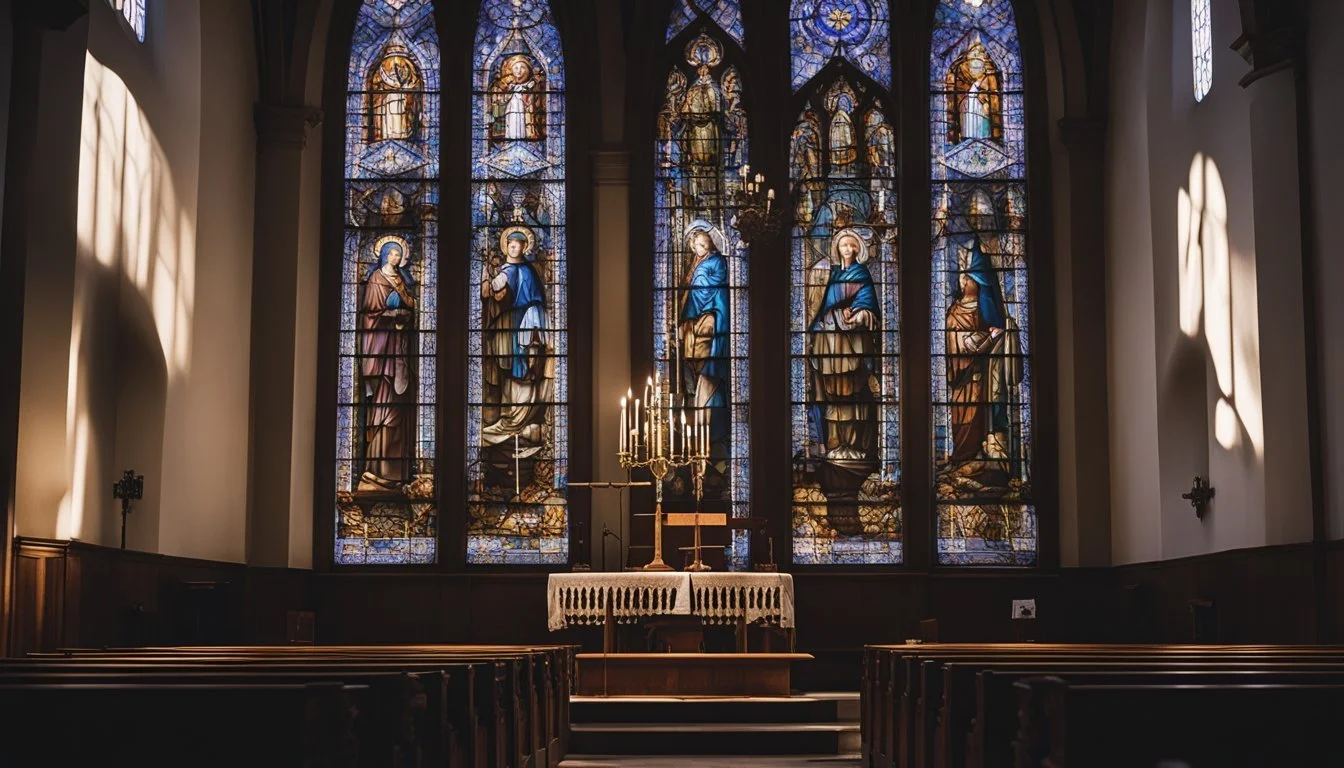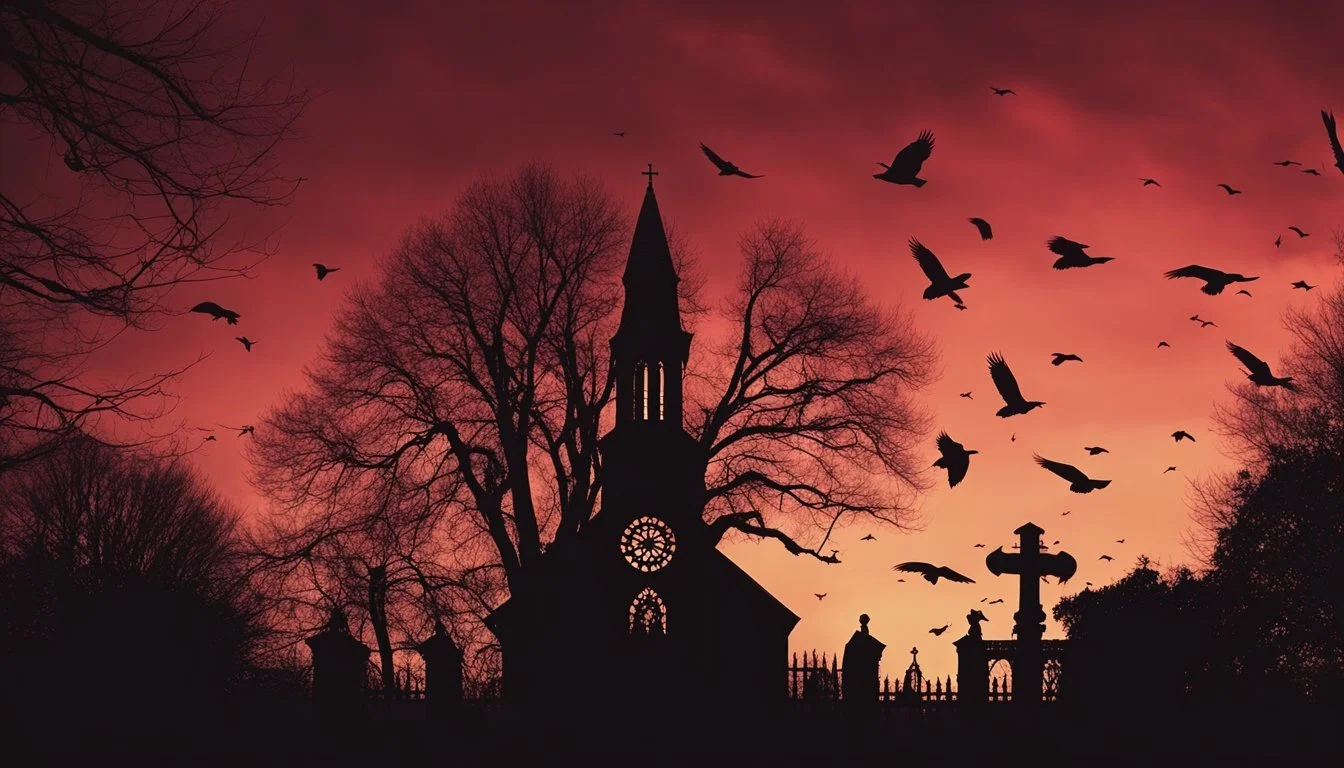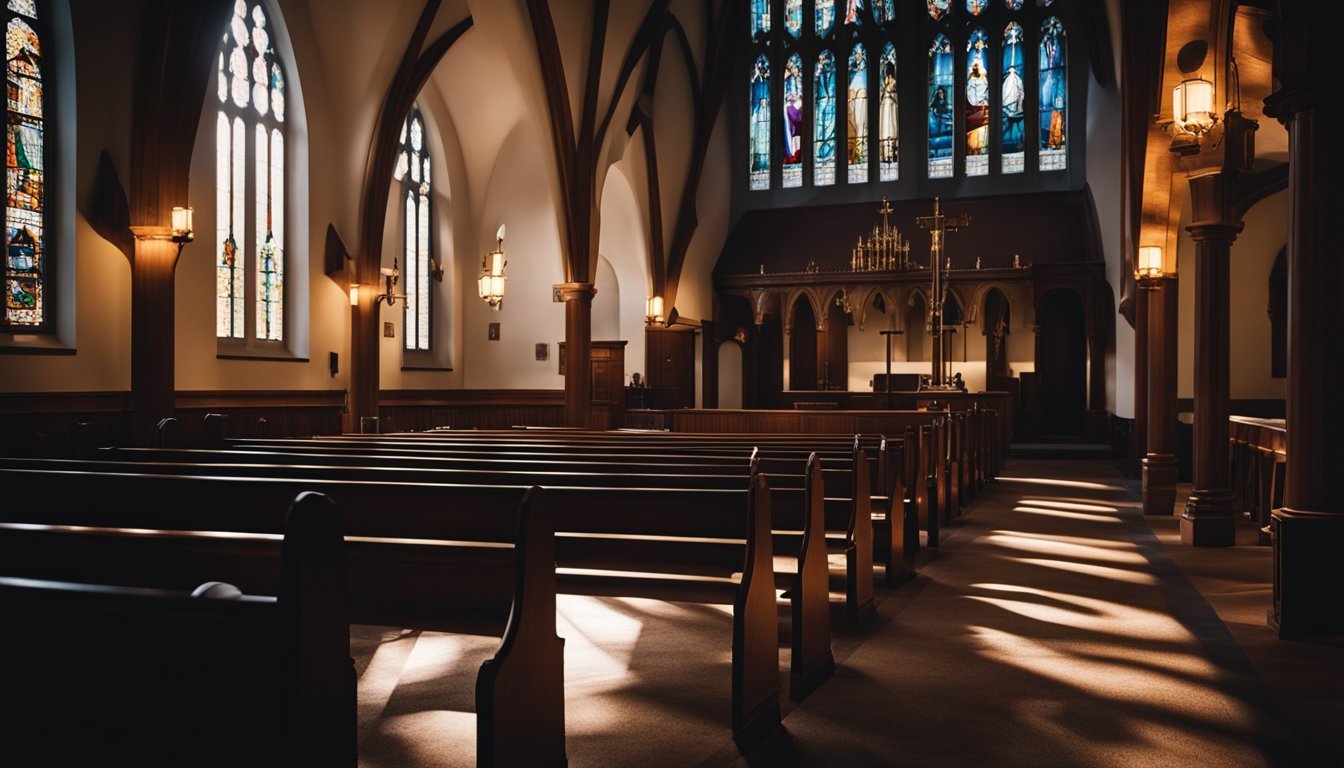10 True Crime Documentaries About Lutheran Churches You Need to Watch
True crime documentaries often captivate audiences with real-life stories of scandals, mysteries, and offenses committed under the guise of faith. Focusing on Lutheran churches, this article highlights ten documentaries that delve into crimes occurring within communities believed to be sanctuaries of trust and morality.
What makes these documentaries particularly striking is the contrast between the teachings of the Lutheran faith and the actions of a few individuals within the church who breach these values. Through vivid storytelling and thorough investigation, these films and series illuminate the dark episodes that have occurred, shedding light on the complex interplay between religion, power, and human nature.
1) A Sinister Congregation
"A Sinister Congregation" is a gripping true-crime documentary that explores the dark history of a Lutheran church community deeply intertwined with deception, manipulation, and violence. Released in 2019, this film delves into the chilling events that unfolded within a once-trusted religious institution.
The documentary centers on a small-town church whose charismatic yet controlling pastor slowly led the community down a dangerous path. Congregants were gradually isolated from their friends and families, and the church became a breeding ground for fear and distrust.
As the film progresses, viewers learn about the pastor's increasingly bizarre behavior and the cult-like atmosphere that took hold of the congregation. Through interviews with former members and investigative journalists, the documentary paints a stark picture of how faith can be exploited for personal gain.
Critical reception has highlighted the film's thorough research and compelling storytelling, which shed light on a little-known chapter of Lutheran church history. This documentary serves as a powerful reminder of the potential for corruption within religious organizations.
For more information on this harrowing story, visit the IMDB page of the film.
2) Secrets of a Lutheran Pastor
One notable true crime documentary involving a Lutheran church focuses on the life and mysterious secrets of a Lutheran pastor. This case reveals hidden aspects of his life that few knew about.
The pastor reportedly led a double life, maintaining a respected position in his community while engaging in activities that shocked those who knew him. These secrets came to light only after his death, leading to a thorough investigation.
Details are sparse, but the investigation uncovered financial misappropriations, questionable relationships, and potential involvement in illegal activities. The community's perception of the pastor changed dramatically as these revelations unraveled.
The documentary delves into interviews with those close to the pastor, including family members, churchgoers, and investigators. These interviews provide insight into how he managed to keep his secrets hidden for so long.
Through careful storytelling and factual recounting, the film paints a complex picture of a man leading a seemingly pious life while harboring dark secrets. The impact on the local Lutheran community was profound, leading to discussions about trust and integrity in religious leadership.
For more information on the film, visit IMDb.
3) Faith and Murder
Faith is often a source of comfort and community, yet in some shocking cases, it can intertwine with dark, criminal acts. True crime documentaries focusing on Lutheran churches reveal startling crimes that shake communities rooted in faith.
"Murder Among the Mormons" (2021) explores the Salt Lake City bombings, revealing deceit and violence in religious circles. Though not directly related to Lutheran churches, it highlights how faith-based communities can become embroiled in heinous acts. Learn more
"The Keepers" (2017) delves into the unsolved murder of a nun in Baltimore, uncovering a web of abuse and corruption within the church. While focusing on Catholic institutions, it offers insight relevant to understanding similar crimes in Lutheran contexts. Learn more
"The Innocent Man" (2018) is based on John Grisham's non-fiction book, detailing wrongful convictions in Oklahoma. The documentary does not specifically target Lutheran churches but underscores the themes of justice and faith intersecting with crime. Learn more
These documentaries do more than entertain; they shed light on the complex relationship between faith and the darker aspects of human nature. Through careful storytelling, they reveal how deeply crime can impact religious communities, exposing the vulnerabilities and resilience of faith groups.
4) The Church of Deceit
"The Church of Deceit" (2022) explores the unsettling tale of a Lutheran congregation led astray by its charismatic but corrupt pastor. This documentary sheds light on the manipulation and misuse of faith for personal gain.
The film dives into the intricate web of lies spun by the pastor, who exploits the trust of his followers. It reveals how the church members deal with the betrayal and the legal battles that ensue.
The narrative follows the lives of several congregation members, providing a personal perspective on the scandal. Their testimonials are both heart-wrenching and eye-opening, revealing the emotional toll of the deception.
5) Hallowed Be Thy Name (2024)
"Hallowed Be Thy Name" explores a chilling case linked to a Lutheran church. The documentary delves into a series of criminal activities that shock this tight-knit community. The story unfolds through interviews with church members, law enforcement, and experts, providing a comprehensive view of events.
The film investigates the intriguing circumstances surrounding the crime. It highlights how the church's environment played a role in the unfolding drama. This adds a unique perspective compared to other true crime documentaries.
Detailed reenactments and archival footage help bring the story to life. The narrative structure maintains a gripping pace, keeping viewers engaged throughout the investigation.
For more details, visit IMDb.
6) Lutheran Betrayal
In the documentary world, betrayal themes often expose the darker sides of human relationships. "A Time for Burning" (1966) is a prime example in this genre, focusing on the efforts of a Lutheran minister to address racial barriers within his congregation.
The film discusses the resistance he faces, shedding light on the deep-seated prejudices present within the church. This betrayal is twofold: members betray the church's teachings of love and acceptance, while the minister himself is betrayed by those he seeks to guide toward unity.
The tension makes for riveting viewing, illustrating how entrenched beliefs can lead to profound disillusionment and conflict. This documentary can be found for more detailed exploration on various platforms.
A Time for Burning (1966) - IMDb
7) God's Hidden Shadows
"God's Hidden Shadows" (2022) delves into the unsettling crimes connected to a small Lutheran church in a suburban town. This documentary brings to light the duplicitous nature of seemingly virtuous individuals.
The narrative follows the story of a respected pastor embroiled in a series of criminal activities. His actions left the community in disbelief, leading to a scandal that rocked their faith.
Through interviews with church members and law enforcement, the film unveils the sinister events that occurred behind closed doors. It carefully examines the psychological manipulation and power dynamics at play.
The documentary portrays the complex layers of trust and betrayal within the religious community. It offers a poignant look at how faith can be exploited for nefarious purposes by those in power.
Viewers are taken on a journey of revelation and reflection. The church, once a symbol of solace, becomes a backdrop for a gripping story of hidden corruption and moral decay.
The cinematography and interviews blend to create a compelling narrative. It challenges viewers to reassess their perceptions of sanctity and trust.
More information: IMDB.
8) Sinister Saints
"Sinister Saints" (2021) dives into unsettling events surrounding a Lutheran congregation. The documentary explores allegations of manipulation and control exerted by a charismatic pastor.
Viewers are taken through testimonies of former church members who reveal a series of troubling practices within the congregation. These include financial exploitation and emotional abuse masked under religious pretext.
The film utilizes extensive archival footage and interviews to build a comprehensive narrative. It emphasizes the thin line between religious guidance and authoritarian control that pervaded the church community.
Efforts by local authorities to investigate the claims faced numerous obstacles due to the tight-knit nature of the congregation. This included reluctance from members to speak out against their spiritual leader.
For more information on "Sinister Saints," visit IMDb.
9) Chilling Confessions
Chilling Confessions is a gripping true crime documentary that explores the horrifying crimes of Kevin Davis. This documentary delves into Davis's tragic life and the shocking events that led to his criminal actions.
Kevin Davis was found guilty of committing gruesome crimes in 2014, creating waves across the nation.
The documentary presents testimonies, police interviews, and first-hand accounts from those involved in the case. It examines the psychological factors that drove Davis to commit his crimes, offering viewers a deeper insight into the mind of a criminal.
For those looking to understand the complexities of true crime cases within religious communities, Chilling Confessions provides a chilling yet educational experience.
Learn more about this documentary on IMDb Chilling Confessions (2014).
10) Sins of the Flock (2022)
"Sins of the Flock" explores a chilling and captivating tale of crimes within a small Lutheran community.
Set in a picturesque town, this documentary delves into a series of shocking events involving trusted clergy members. These revelations uncover a dark underside where betrayal and criminal activities intertwine with faith.
The documentary brings to light how some members of the church abused their positions of power. It highlights instances of fraud, embezzlement, and other criminal behaviors.
Interviews with victims and community members provide first-hand accounts of the impact these crimes had on their lives. Each story is a piece of a larger puzzle that paints a grim picture of manipulation and trust betrayed.
Directed with a focus on detail, "Sins of the Flock" offers a sobering look into how crime can infiltrate even the most trusted institutions. It's a reminder of the vigilance needed to maintain integrity within communities of faith.
Sins of the Flock (2022) on IMDb
Historical Context of Lutheran Churches
Lutheran churches have a rich history that dates back to the Protestant Reformation in the 16th century. The evolution of these churches has been influenced by key figures and has had a lasting impact on local communities.
Origins and Evolution
Lutheranism began with Martin Luther, a German monk who challenged the Roman Catholic Church's practices and teachings in 1517. His 95 Theses sparked the Protestant Reformation, leading to the establishment of Lutheran churches. Early followers of Luther's teachings formed a new Christian denomination that emphasized salvation through faith and the authority of the Bible.
In the centuries that followed, Lutheranism spread beyond Germany to Scandinavia and other parts of Europe. Immigrants brought the faith to North America, where it developed distinct regional characteristics. The early Lutheran churches in the United States played pivotal roles in their communities and adapted to the diverse cultural landscape.
Key Figures in Lutheran History
Martin Luther stands as the most significant figure in Lutheran history. His theological writings and leadership were foundational to the movement. Later, theologians like Philip Melanchthon helped to systematize Lutheran doctrine. Melanchthon’s work in the Lutheran Confessions provided a unified theological framework.
In the 17th century, leaders like Johann Gerhard further advanced Lutheran theology. The era known as Lutheran Orthodoxy was marked by a commitment to doctrinal precision. Influential figures such as Paul Henkel impacted Lutheranism in North America, particularly in the early 19th century, by nurturing the faith's growth among settlers.
Impact on Local Communities
Lutheran churches have historically been centers of community life. In colonial America, they served not only as places of worship but also as community meeting points. The Augustus Lutheran Church, for instance, is one of the oldest in the United States and played a role in local governance during the American Revolution.
These churches were often involved in education and social services, founding schools and charitable organizations. They addressed both spiritual and practical needs, integrating themselves deeply into the social fabric of their communities. Today, many Lutheran churches continue to influence their regions through outreach programs and community services.
Themes in True Crime Documentaries
True crime documentaries often explore themes such as hidden scandals, the psychological profiles of key individuals, and the legal and ethical implications surrounding the cases. These aspects draw viewers into the intricate details and human elements of the crimes.
Exploring Hidden Scandals
Many true crime documentaries delve into covert events and dark secrets. These narratives reveal unspoken truths within communities or organizations. Hidden scandals often revolve around financial misconduct, illicit relationships, or abuses of power.
By exposing these elements, filmmakers create a compelling storyline that questions societal norms and organizational integrity. Key revelations not only drive the plot but also challenge viewers to think critically about trust and accountability.
Psychological Profiles of Key Individuals
Understanding the mental state and motivations of individuals involved is essential for true crime narratives. Documentaries often feature psychological insights from experts to shed light on the behaviors of perpetrators, victims, and investigators.
This analysis helps audiences comprehend the complex human emotions and factors contributing to the crime. Profiling techniques and interviews with psychologists provide depth to the narrative, making it more than just a sequence of events.
Legal and Ethical Implications
True crime documentaries frequently highlight the judicial processes and ethical dilemmas faced during the investigation and trial of cases. These films scrutinize the conduct of law enforcement, legality of evidence collection, and fairness of trials.
The focus on legal aspects ensures the audience understands the broader impact of the crime on justice systems and society. Ethical questions, such as media influence on public opinion and the portrayal of victims, are also examined to illustrate the moral complexities involved.
Case Studies and Notable Incidents
This section focuses on prominent incidents involving Lutheran churches and the valuable insights derived from true crime documentaries.
Infamous Cases Involving Lutheran Churches
One significant case is the murder of Pastor A.B. Schmitt in rural Minnesota in the 1980s. The case shocked the tight-knit community and involved extensive investigations that unveiled complex relationships and hidden motives within the congregation.
Another notable incident is the embezzlement scandal at St. Mark's Lutheran Church in New York in 2005. A trusted church treasurer diverted over $400,000 from church funds, leading to federal charges and a reassessment of financial oversight practices within religious institutions.
More recently, the 2015 unsolved arson at St. Paul's Lutheran Church in Ohio drew national attention. The fire resulted in substantial damage, and the case remains under investigation, with many speculating about the motives and involvement of various community members.
Lessons Learned from Documentaries
True crime documentaries on these cases highlight the importance of transparency and accountability within religious institutions. Interviews with law enforcement, church members, and experts often emphasize the need for robust internal controls and vigilance to prevent financial misconduct.
Documentaries also reveal the psychosocial impacts on congregations involved in such incidents. They illustrate how faith communities can come together to heal and implement reforms after traumatic events.
Moreover, these films serve as educational tools, demonstrating investigative techniques and legal strategies used to solve complex crimes, providing viewers with a deeper understanding of how justice is pursued within the religious sector.

